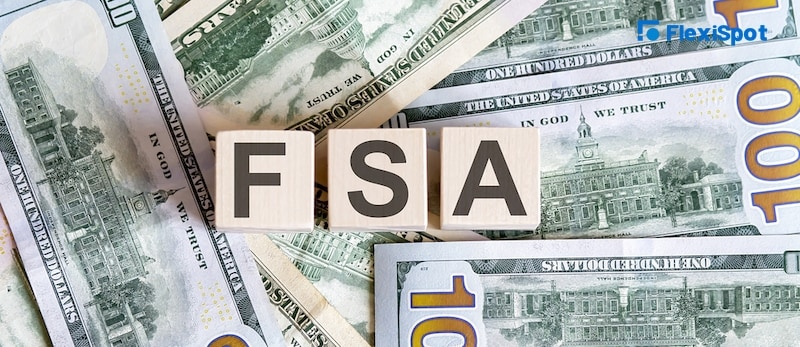With healthcare costs skyrocketing over the last few decades, citizens across the nation have turned to Flexible Spending Accounts (FSAs) to lighten their financial loads. But what are considered FSA eligible expenses? Is there anything in our daily lives that can be considered FSA eligible? The answers may surprise you!
What are FSAs?
A Flexible Spending Account is a tax-advantaged financial account meant solely to pay for any health care costs you may have. It is offered by your employer if you have a health plan through them. The money that goes into an FSA comes directly out of your paycheck pre-tax, so you don't pay taxes on any money you set aside for your FSA.
Types of FSA
An important thing to consider when researching FSA eligible expenses is exactly what type of FSA you have: health care FSA, dependent care FSA, or limited expense FSA. Health care FSAs are the most common type of FSA, and encompass the widest range of expenses, from deductibles to over-the-counter medicines. Dependent care FSAs are used to pay for certain expenses related to the care of the FSA holder's dependents, primarily while they are at work — most commonly child care or after school programs. Limited expense FSAs are meant for individuals who have a High Deductible Health Plan (HDHP) with a Health Savings Account (HSA), since they are not eligible for a full health care FSA. As the name would suggest, only a fraction of the expenses eligible for a health care FSA are eligible for a limited expense FSA. For the sake of simplicity, we'll be exploring health care FSA eligible expenses in this article.
What can I use my FSA for?
As mentioned above, FSAs are used to cover health care related expenses, so obvious things like insurance deductibles, emergency room visits, and eye exams are of course included. However, health related expenses may encompass more than you might think. Here are 12 unexpected things that are covered by your FSA:
- Allergy-related products: As long as you have a prescription or doctor's note, your FSA will cover any expenses related to allergy control/treatment. This includes over-the-counter medicine, HEPA filters, air purifiers, etc.
- Birth control: Both over-the-counter and prescription birth control are covered, but over-the-counter birth control can only be claimed if you have a prescription for them from your doctor.
- Braille literature: For those with visual impairments, FSAs will cover the cost difference between the more expensive Braille and cheaper standard printed versions of books and magazines. Documentation of the price difference is required.
- Classes: If you are or are expecting to be a mother, certain child care related classes will be reimbursed by your FSA, including breastfeeding, childbirth, and lamaze classes.
- Ergonomic equipment: Everything including specialized keyboards, seat cushions, anti-fatigue mats, monitor mounts and height adjustable desks are covered by your FSA as long as you have a doctor's note.
- Glucosamine: If you experience joint pain and use or are thinking of trying glucosamine, you can use your FSA funds to pay for it. You don't even need a prescription!
- Home improvements: If you or a dependent have a disability, certain home improvements are FSA eligible, including installing rails and ramps, widening doorways, and other changes. You will need a doctor's note proving the medical necessity of these alterations.
- Mileage and travel: Travel expenses to and from qualifying medical, dental, and vision care are considered FSA eligible. This includes ground and air transportation fares and car mileage, if you drive yourself.
- Over-the-counter supplies: Certain over-the-counter products are considered health expenses, no questions asked, and don't even require a doctor's note. These include condoms, contact lens solutions, first aid kits, hand sanitizer, sunscreen, and more!
- Recliners: More than just the La-Z-Boy in your living room! Recliners include lift chairs and Geri-chairs, which, if accompanied with a doctor's note, are covered by your FSA.
- Eye patches: All eye equipment is eligible for reimbursement, and this includes eye patches.
- Wigs: If you lose your hair due to a medical treatment or condition, you can claim the purchase of a wig as an FSA expense; all you need is a doctor's note.
A surprising number of things are covered by your FSA. So why not pay for those things with pre-tax money? FSAs are easy to enroll in, expenses are simple to submit claims for, and you'll save a bunch of money on taxes!















